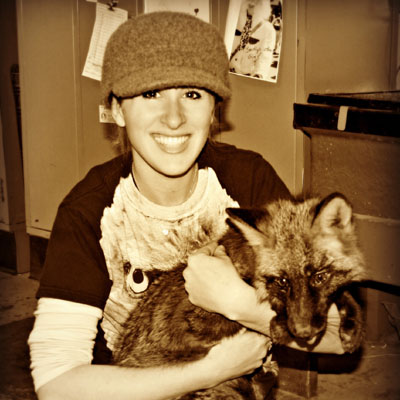I spent the five happiest years of my life in a morgue. As a forensic scientist in the Cleveland coroner’s office I analyzed gunshot residue on hands and clothing, hairs, fibers, paint, glass, DNA, blood and many other forms of trace evidence, as well as crime scenes. Now I'm a certified latent print examiner and CSI for a police department in Florida. I also write a series of forensic suspense novels, turning the day job into fiction. My books have been translated into six languages.
I'm sorry, I thought I answered this one. We work 40 hours per week, some of us are on four 10s and some on rotating 12 hour shifts. Each of us takes a turn on being 'on call' for overtime calls.
There are usually levels of the job, like Tech I, Tech II etc. depending on years of experience that will come with an increase in salary. After that one can progress to supervisory role. But there aren't a lot of steps, really. For instance I have nowhere to go from my current position, and I don't care. I like what I'm doing and have zero interest in being the supervisor.
I like all the interesting, different, bizarre stories that make up the crimes that have happened that we have to investigate. I dislike being 'on call' and knowing you can be interrupted at any moment of the day and have to go to a crime scene, even if it's the middle of the night or a holiday. I've also had to change vacations because I have to testify in a trial. I hate that.
I wasn't aware that there were theories other than: Do the right thing. Don't do the wrong thing.
Figuring out which is which isn't really that hard. Doing it might be, but it's usually not hard to figure out.
Hope that helps!
Zookeeper and Animal Trainer
 Which cuddly-seeming animals are actually dangerous to be around?
Which cuddly-seeming animals are actually dangerous to be around?
Professor
 Are professors really subject to the "Publish or Perish" policy?
Are professors really subject to the "Publish or Perish" policy?
Nightclub Promoter
 How do you decide who gets into your club?
How do you decide who gets into your club?
Like any other line of work, it all depends upon the mistake made, what effects it had, and how culpable you are. If it's a typo, just fix it and maybe make a note in the file. If you get someone killed, your boss will probably have to fire you. If it was an honest mistake, then you might get a note in your file. If you steal or invent evidence, you'll be fired and probably not work again.
An excellent site is my friend Dr. Lyle's "The Writer's Forensic Blog" - https://writersforensicsblog.wordpress.com/
You also might attend any public events at your local police department, such as a citizen's academy. There you might meet members of the crime lab and see if any might be amenable to you emailing them questions now and then. Feel free to email me as well via my website: www.lisa-black.comBest of luck!
See above.
-OR-
 Login with Facebook
Login with Facebook (max 20 characters - letters, numbers, and underscores only. Note that your username is private, and you have the option to choose an alias when asking questions or hosting a Q&A.)
(A valid e-mail address is required. Your e-mail will not be shared with anyone.)
(min 5 characters)
By checking this box, you acknowledge that you have read and agree to Jobstr.com’s Terms and Privacy Policy.
-OR-
 Register with Facebook
Register with Facebook(Don't worry: you'll be able to choose an alias when asking questions or hosting a Q&A.)